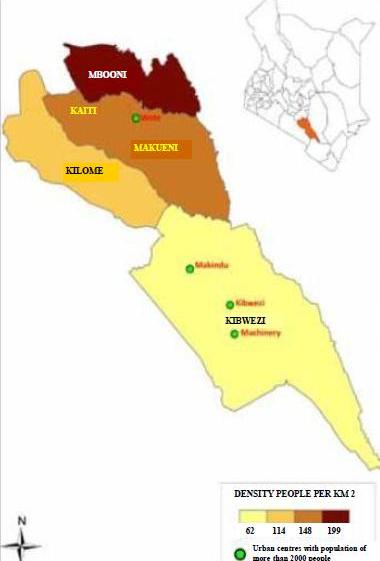Picture yourself in the scenic landscapes of Makueni County, a hidden gem in the heart of Kenya. Nestled between rolling hills and lush greenery, this county boasts a rich cultural heritage and offers a plethora of activities for every type of adventurer. From exploring the vibrant local markets to embarking on thrilling nature trails, Makueni County is a haven for those seeking a unique and unforgettable experience. Indulge in mouthwatering local cuisine, immerse yourself in traditional music and dance, and be enchanted by the warm and welcoming locals who are ready to make your stay truly unforgettable. Get ready to embark on a journey of a lifetime in the enchanting Makueni County.
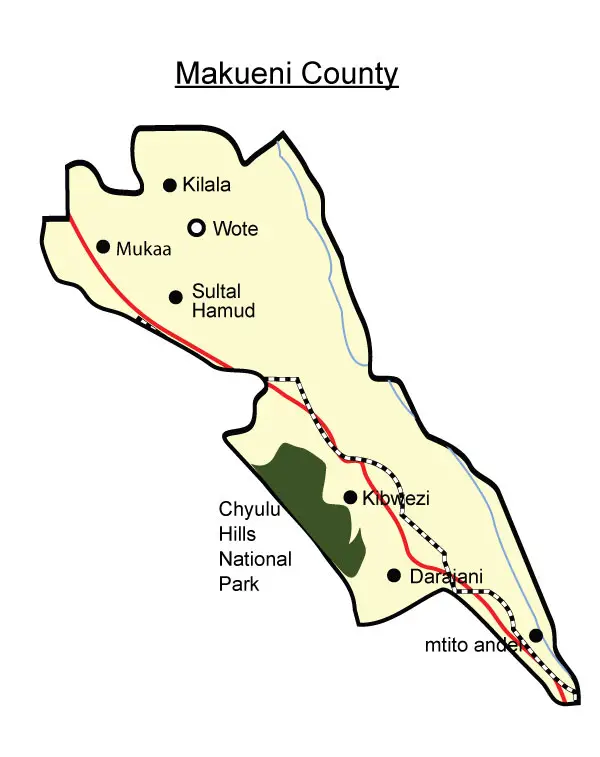
This image is property of elimufeynman.s3.amazonaws.com.
Geography
Location
Makueni County is located in the southeastern part of Kenya. It is bordered by Kitui County to the east, Machakos County to the west, Taita Taveta County to the south, and Kajiado County to the southwest. The county covers an area of approximately 8,008 square kilometers and is situated in the former Eastern Province of Kenya.
Climate
Makueni County experiences a semi-arid climate with hot and dry conditions throughout the year. The average annual rainfall ranges from 400 to 800 millimeters, with the long rains occurring between March and June and the short rains between October and December. Temperatures are relatively high, with average daily temperatures ranging from 20 to 30 degrees Celsius.
Natural Features
Makueni County is characterized by diverse natural features that make it a truly unique destination. The county is home to the scenic Ngulia Hills, which provide a stunning backdrop to the surrounding plains and offer breathtaking views of the sunset. The Chyulu Hills, located on the eastern edge of the county, are known for their volcanic terrain and are an important water catchment area. The county also boasts the beautiful Thange Valley, a picturesque landscape dotted with small hills, rocky outcrops, and lush vegetation.
History
Early Settlement
The history of human settlement in Makueni County dates back thousands of years. Archaeological evidence suggests that the area was inhabited by early hunter-gatherer communities as far back as the Stone Age. Over time, these communities transitioned to agro-pastoralist societies and began cultivating crops such as millet, sorghum, and maize. The introduction of iron tools revolutionized agricultural practices and contributed to the growth of settled communities in the area.
Colonial Era
Like the rest of Kenya, Makueni County was colonized by the British in the late 19th century. During this period, the region experienced significant political and social changes as European settlers established large-scale farms and introduced cash crops such as coffee and cotton. The colonial era also saw the construction of infrastructure such as roads and railways, which facilitated trade and economic development in the region.
Post-Independence
Makueni County, like the rest of Kenya, gained independence from British colonial rule on December 12, 1963. The post-independence period was marked by efforts to promote socio-economic development and improve the living conditions of the local population. The county has witnessed significant progress in sectors such as education, healthcare, and infrastructure, and continues to strive for inclusive growth and prosperity.
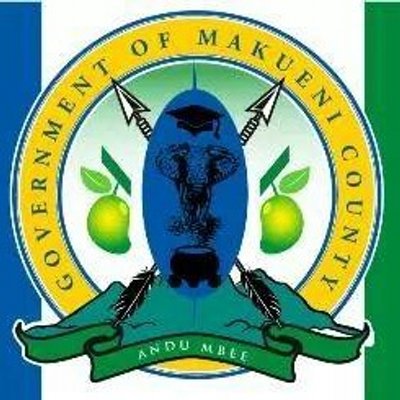
This image is property of pbs.twimg.com.
Demographics
Population
As of the last census conducted in 2019, Makueni County had a population of approximately 987,653 people. The population is predominantly rural, with the majority of residents engaged in agricultural activities. The county’s population has been growing steadily over the years, driven by factors such as natural population increase and rural-urban migration.
Ethnic Groups
Makueni County is home to various ethnic groups, with the Kamba community being the largest. The Kamba people are known for their rich cultural heritage, which includes vibrant traditional practices, art, music, and dance. The county is also home to other ethnic communities, including the Maasai and Taita peoples, who contribute to the cultural diversity of the region.
Languages
The primary language spoken in Makueni County is Kikamba, which belongs to the Bantu language family. English and Swahili are also widely spoken, particularly in urban areas and in formal settings such as schools and government offices.
Religion
Religion plays a significant role in the lives of the people of Makueni County. The majority of residents adhere to Christianity, with various denominations represented in the county. Islam and traditional African religions also have a presence, contributing to the religious diversity of the region.
Government
County Administration
Makueni County is governed by a county government, which is responsible for the administration of the county’s resources and the provision of public services. The county administration is headed by the Governor, who is elected by the residents of the county.
Governor
The current Governor of Makueni County is Hon. Kivutha Kibwana, who has been in office since 2013. Governor Kibwana has been instrumental in driving development initiatives in the county, focusing on areas such as healthcare, education, and infrastructure.
Members of County Assembly
Makueni County is divided into several electoral wards, each represented by a Member of County Assembly (MCA). The MCAs are responsible for representing the interests of their respective wards and participating in the legislative process at the county level.
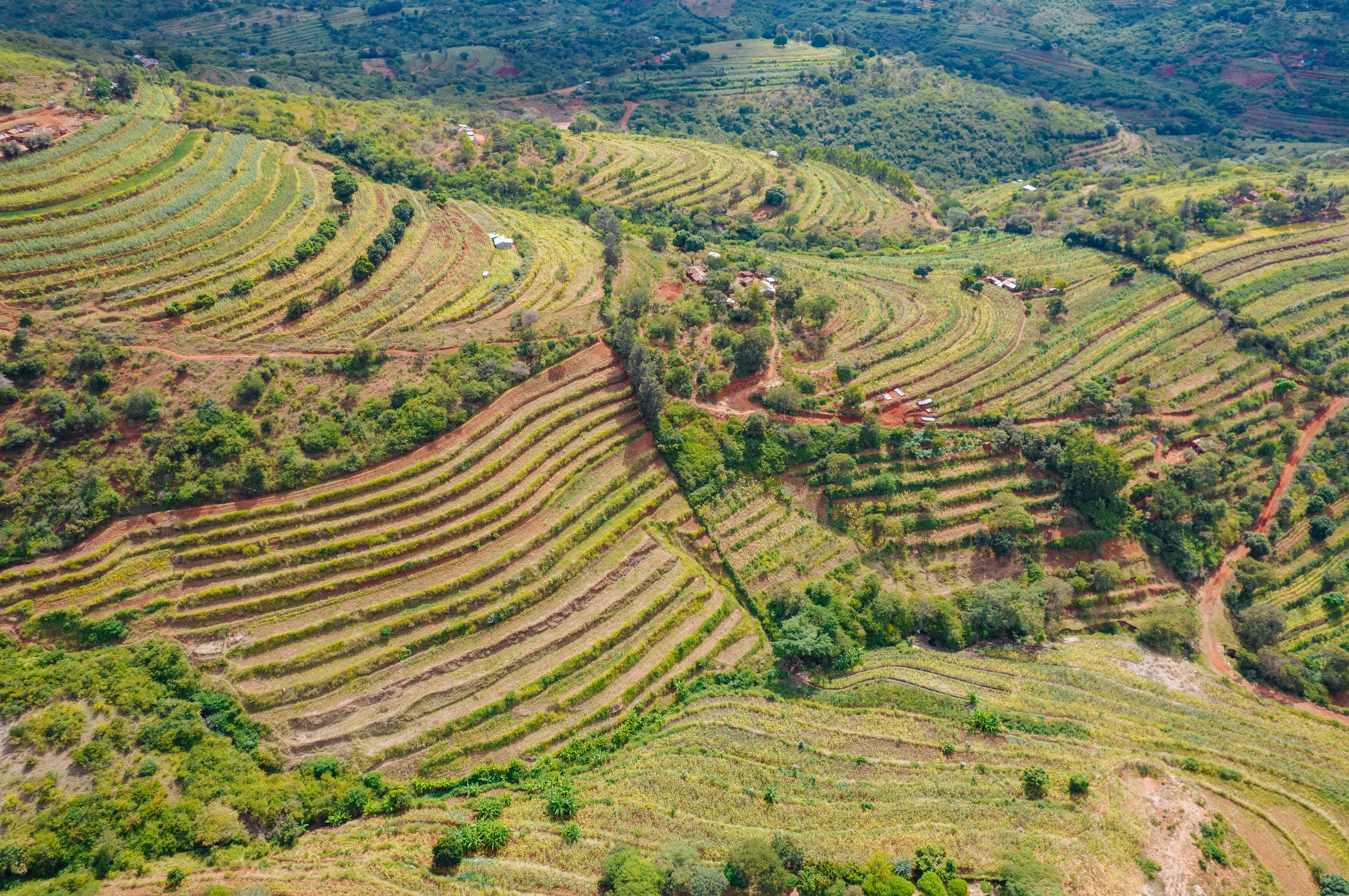
This image is property of afr100.org.
Economy
Agriculture
Agriculture is the backbone of Makueni County’s economy, with the majority of residents engaged in farming activities. The county is known for its fertile soils and favorable climatic conditions, which support the cultivation of a wide range of crops, including maize, beans, peas, and fruits such as mangoes and oranges. Livestock rearing, particularly dairy farming and poultry keeping, is also practiced in the county.
Tourism
Makueni County has significant potential for tourism development. The county is home to the renowned Tsavo East National Park, which offers visitors the opportunity to experience an abundance of wildlife, including elephants, buffalos, lions, and various bird species. The park also features stunning landscapes, such as the Galana River, the Yatta Plateau, and the Lugards Falls. Other tourist attractions in the county include the Thange Valley, known for its picturesque views and hiking trails, and the Ngulia Rhino Sanctuary, a conservation area for the endangered black rhino.
Manufacturing
The manufacturing sector in Makueni County is growing steadily, contributing to job creation and economic development. The county is home to several small and medium-sized enterprises that engage in the production of various goods, including processed foods, beverages, textiles, and construction materials.
Mining
Makueni County has untapped mineral resources, including limestone and gemstones. Mining activities in the county are still in the early stages, but efforts are being made to explore and exploit these resources in a sustainable and responsible manner.
Infrastructure
Transportation
Makueni County is well-connected to the rest of Kenya through an extensive road network. The major roads in the county include the Nairobi-Mombasa Highway, which passes through the county’s southern part, and the Makindu-Kibwezi Road, which connects the county to neighboring Kitui County. The county also has an airstrip located in Wote, the county’s administrative center, which facilitates air travel within the county and to other parts of the country.
Healthcare
Makueni County is committed to providing quality healthcare services to its residents. The county has several hospitals, clinics, and community health centers that offer a range of medical services, including maternal and child health, immunizations, treatment of common ailments, and emergency care. Efforts are also underway to strengthen the healthcare system and improve access to specialized medical services.
Education
Education is a priority in Makueni County, with significant investments made in the sector. The county has a wide network of primary schools, secondary schools, and tertiary institutions, including vocational training centers and universities. The county government has implemented various initiatives to improve access to education, including the provision of scholarships and the construction of school infrastructure.
Utilities
Makueni County has made significant progress in the provision of basic utilities such as water and electricity. The county government has undertaken various projects to improve access to clean and safe water, including the construction of boreholes and water pans. Efforts are also being made to expand access to electricity, particularly in rural areas, through initiatives such as the Rural Electrification Program.
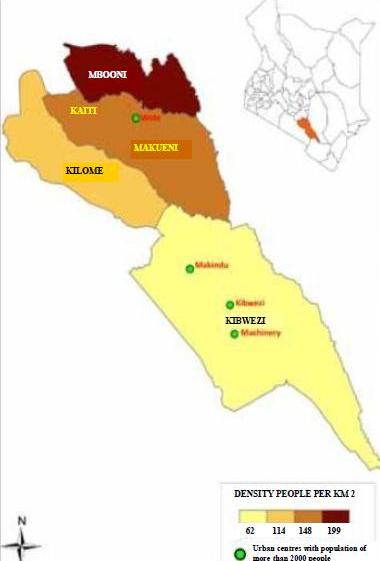
This image is property of opencounty.org.
Culture
Traditional Practices
The people of Makueni County have a rich cultural heritage, which is celebrated and preserved through traditional practices. These practices include rites of passage, traditional medicine, and storytelling. The county government, in collaboration with local communities, is actively involved in promoting and preserving these cultural practices.
Art and Crafts
Art and crafts play an important role in Makueni County’s culture. The county is known for its skilled artisans who produce various crafts, including wood carvings, woven baskets, and beadwork. These crafts not only serve as a source of income for the artisans but also contribute to the cultural identity of the county.
Music and Dance
Music and dance form an integral part of the cultural fabric of Makueni County. The county is known for its vibrant traditional music, which is characterized by rhythmic drumming, melodic singing, and energetic dancing. Traditional dances such as the Kamba dance and the Maasai dance are performed during cultural festivals and special occasions, showcasing the diversity and vibrancy of the county’s cultural heritage.
Cuisine
The cuisine of Makueni County is a reflection of the region’s agricultural abundance. Staple foods such as maize, beans, and vegetables are commonly consumed, along with traditional dishes such as ugali (a thick maize porridge) and mboga za kienyeji (traditional vegetable stew). The county is also known for its delicious fruits, including mangoes, pawpaws, and avocados.
Tourist Attractions
Tsavo East National Park
Tsavo East National Park is one of the largest and oldest national parks in Kenya, covering an area of approximately 13,747 square kilometers. The park is renowned for its diverse wildlife, including elephants, buffalos, giraffes, zebras, and various bird species. Visitors to the park can enjoy game drives, birdwatching, and guided nature walks, allowing them to experience the untamed beauty of the African savannah.
Thange Valley
The Thange Valley is a scenic landscape located in the southern part of Makueni County. The valley is characterized by steep slopes, rocky outcrops, and lush vegetation, offering breathtaking views and excellent hiking opportunities. Visitors can explore the valley on foot and enjoy the tranquility of the natural surroundings.
Ngulia Rhino Sanctuary
The Ngulia Rhino Sanctuary is located within the Tsavo West National Park and serves as a conservation area for the endangered black rhino. The sanctuary offers visitors the unique opportunity to see these magnificent creatures up close and learn about conservation efforts to protect them. Guided tours and game drives are available, providing visitors with an unforgettable experience in the heart of Makueni County’s natural beauty.
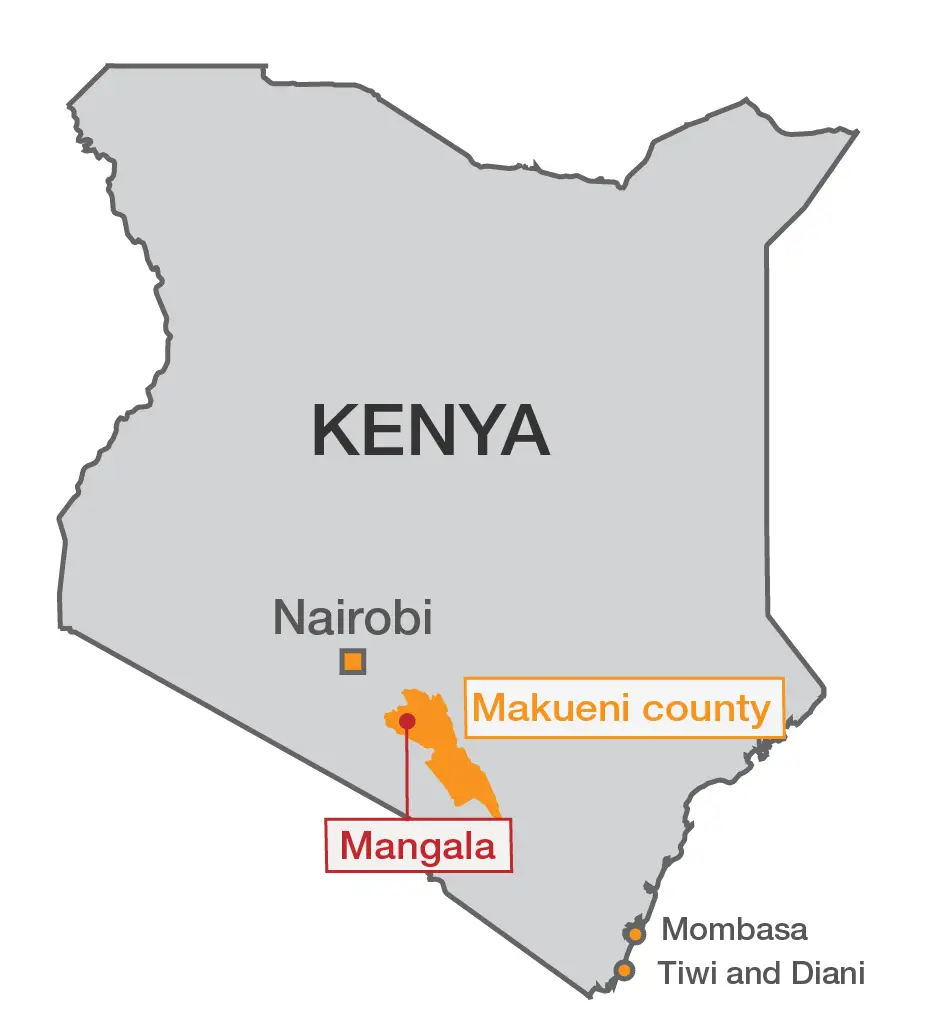
This image is property of file.ejatlas.org.
Education
Primary Schools
Makueni County has a wide network of primary schools, providing quality education to children at the foundational level. These schools offer a comprehensive curriculum that includes core subjects such as Mathematics, English, and Science, as well as co-curricular activities such as sports and cultural events. The county government has implemented various initiatives to improve the quality of primary education, including the provision of textbooks and learning materials.
Secondary Schools
Secondary education in Makueni County is provided by a number of well-established schools. These schools offer a broad curriculum that prepares students for both academic and vocational pathways. The county government has invested in the improvement of secondary school infrastructure and the provision of scholarships to deserving students, ensuring that every child has access to quality education.
Tertiary Institutions
Makueni County is home to several tertiary institutions, including vocational training centers, colleges, and universities. These institutions offer a wide range of courses and programs that equip students with the skills and knowledge necessary for employment and entrepreneurship. The county government has partnered with these institutions to provide support and resources, enabling students to pursue higher education and contribute to the county’s economic development.
Healthcare
Hospitals
Makueni County has a number of hospitals that provide healthcare services to residents. These hospitals offer a range of medical services, including emergency care, maternal and child health, laboratory services, and specialized treatment. The county government has invested in the improvement of hospital infrastructure and the recruitment of qualified healthcare professionals, ensuring that residents have access to quality healthcare.
Clinics
In addition to hospitals, Makueni County has numerous clinics that offer primary healthcare services to residents. These clinics provide a wide range of services, including immunizations, outpatient care, family planning, and health education. The clinics are strategically located in various parts of the county to ensure that healthcare services are accessible to all residents.
Community Health Centers
Community health centers play a vital role in the healthcare system of Makueni County. These centers are located in rural and underserved areas and provide essential healthcare services to the communities they serve. Community health workers, trained by the county government, play a key role in these centers, providing health education, preventive care, and basic treatment to community members. The county government continues to support the development and expansion of community health centers to improve access to healthcare in remote areas.

